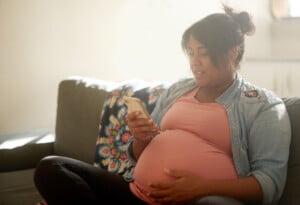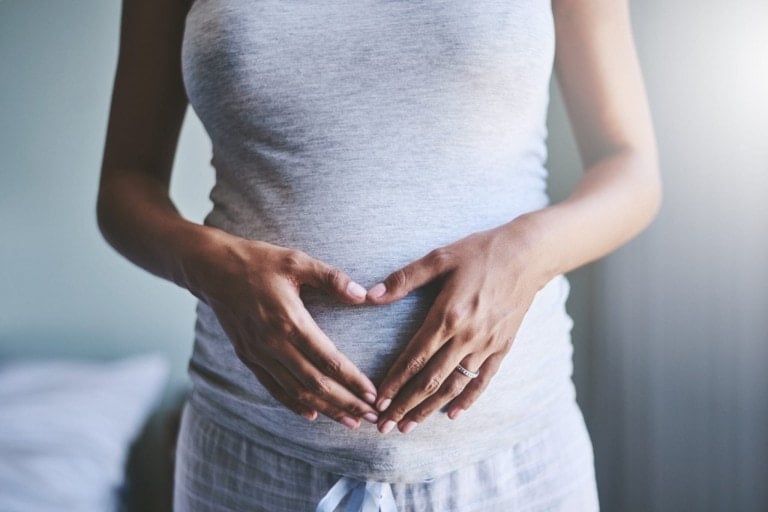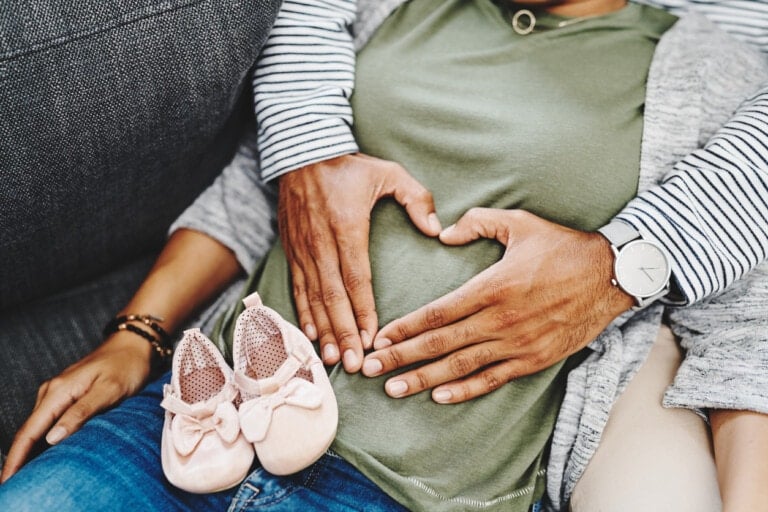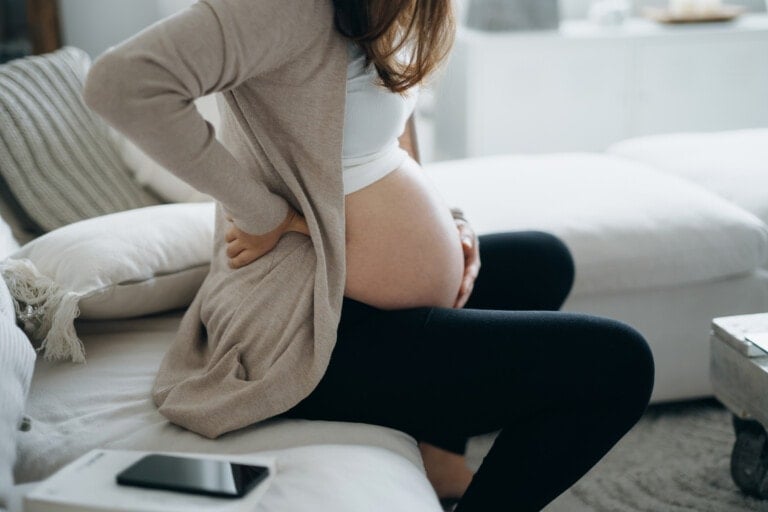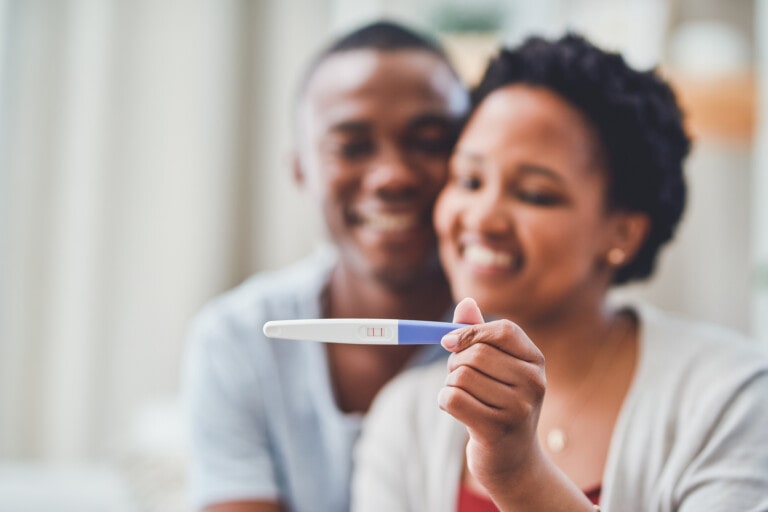If you’re trying to get pregnant or are already pregnant, you may be thinking ahead about pregnancy symptoms and what to expect. What are the first pregnancy symptoms to look for, and when will morning sickness start? When will morning sickness end? The answers may be a bit surprising.
When to Expect Morning Sickness
Before discussing when morning sickness starts, let’s discuss how pregnancy weeks are calculated. Because many women don’t know the exact day they ovulated or conceived, your doctor will most likely start counting the weeks of your pregnancy, beginning from the first day of your last period.3 This means that pregnancy is 40 weeks long, and you’re most likely not even pregnant that first “official” week of pregnancy!
So, with that being said, many women will begin to experience morning sickness during the fifth or sixth weeks of pregnancy, which is pretty early on in your pregnancy. If you have a reasonably regular period, you may feel slightly off starting about two weeks after you miss your period. Since those feelings of morning sickness are partially caused by the increase in pregnancy hormones as your body begins its amazing prep for growing and nurturing your baby, this timeline makes a lot of sense.1
How to Prepare for Morning Sickness
So, how do you deal with morning sickness, and what can you expect? First off, morning sickness can be only nausea for some people. So, if you are one of the lucky ones, it does not have to mean you’re vomiting!
Unfortunately, though, the name is a little misleading. Morning sickness can happen at any time of the day. I felt sick with my second baby throughout the day, which lasted for the entire first trimester. With my first, I had nausea for maybe two weeks and only in the mornings.
There is no surefire way to predict whether morning sickness will happen to you and to what extent. So expect anything, and remember that it won’t last forever!
Ways to Treat Morning Sickness
I wish there were a magic solution for morning sickness. But so far, I don’t know anyone that’s found one! However, there are many helpful remedies that may help to calm nausea. Since nothing is a one-size-fits-all solution, try a few different methods and see what works. Here are a few tips I found that helped me manage morning sickness:
1. Eat small snacks/meals throughout the day instead of large meals.
Eating more often can help since an empty stomach can aggravate nausea. Read the best foods to help with morning sickness.
2. Wear an Acupressure/Anti-Nausea Band.
Anti-nausea bands help by putting pressure on a specific acupressure point on your wrist that helps reduce nausea and vomiting. Sea-bands are my go-to for general motion sickness, and they helped equally as much during those early pregnancy days.
3. Avoid any smells you don’t like.
Pregnancy can heighten your sense of smell to crazy levels, and when something like the smell of chicken makes you nauseous, that can be a problem. Ensure everyone in your house knows your triggers to help you avoid those smells as much as possible!
4. Drink a lot of water, and try ginger tea.
It’s essential to stay hydrated during pregnancy, and even more so if you’re vomiting. Water can help with nausea for some, but if it doesn’t, try ginger tea! Ginger is an excellent, natural treatment for nausea. If neither sounds appetizing, you can eat frozen juice or popsicles to help you stay hydrated.
5. Try Preggi Pop Drops.
During some desperate moments with baby #2, Preggi Pop Drops helped calm my stomach. These lozenges are all-natural, drug-free, and taste great (especially if you have a sweet tooth).
When Does Morning Sickness Stop?
As with every pregnancy symptom, morning sickness eventually ends, I promise! For many moms, morning sickness starts to lessen at the end of the first trimester, or around week 12.2 Since pregnancy differs for every woman, it could end earlier or later.
The good news is that for many women, the second trimester tends to provide a bit of relief from morning sickness and many more challenging parts of pregnancy. You can look forward to hopefully not feeling as tired or sick as during the first trimester and not struggling with a heavy belly and pregnancy fatigue typical of the third trimester.
And in the end, morning sickness will be a distant memory worth every minute when you finally have your baby in your arms.
















